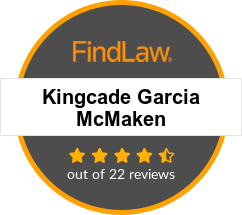What mortgage assistance scams should you watch out for?
Homeowners should beware of scams when attempting to prevent foreclosure. These can include fraudulent loan modifications and shady bank practices.
Florida residents have options to prevent losing their home in a foreclosure, ranging from Chapter 13 bankruptcy to negotiating with mortgage companies. Some may consider a home loan modification. Whether one is recovering from bankruptcy or attempting to stave off a foreclosure prior to filing for bankruptcy, it is important to be aware of the pros and cons of a loan modification, as well as dubious practices that can lurk among legitimate options.
What is a loan modification? People tend to confuse modifications with mortgage refinances. However, as U.S. News & World Report explains, a refinance is usually reserved for those with good credit, who are not facing foreclosure or financial difficulties. On the other hand, a loan modification is a way to lower monthly mortgage payments, giving people who are suffering monetary setbacks a way to catch up on their bills and continue making their house payment.
Does a loan modification sound too good to be true?
Before agreeing to the first modification offer that arrives, home owners should beware – these offers are often extended to those in the midst of a foreclosure, or after filing for Chapter 13. A legitimate loan modification may take several months to complete, and homeowners should know that while a modification will lower the monthly payment, it usually raises the interest rate by a significant amount and can cause thousands of dollars in hidden fees to be tacked on to the end of the loan.
Why consider a mortgage modification, then? It is worth noting that while they may be costly in the long run, those who need immediate help keeping their home may find relief with a modification. They may have the option later, after recovering from financial difficulties and repairing their credit, to refinance their mortgage.
What are the common modification and home loan scams?
Fraudulent operators posing as loan modification companies may reach out to homeowners desperate for help. These scammers often add exorbitant fees or make false promises, leading homeowners on for months while taking their money and never following through with a modification. In the end, homeowners may still lose their homes and be out thousands of dollars to the scammers.
Unfortunately, even banks can break homeowners’ trust. NBC Miami reported on the case of a Florida man who faced foreclosure three times. Twice, his bank asked to dismiss the case, then added attorneys’ fees to his loan balance without his knowledge. The man’s attorney said this was a violation of the Consumer Collection Practices Act, which forbids banks from charging attorneys’ fees if they did not win the case. In another example, a bank fraudulently added attorneys’ fees to an elderly woman’s mortgage when her foreclosure case was dismissed, after the court ordered the bank to pay her legal fees.
Florida residents who are facing foreclosure may benefit by speaking with a bankruptcy attorney before attempting to modify their loans.
















